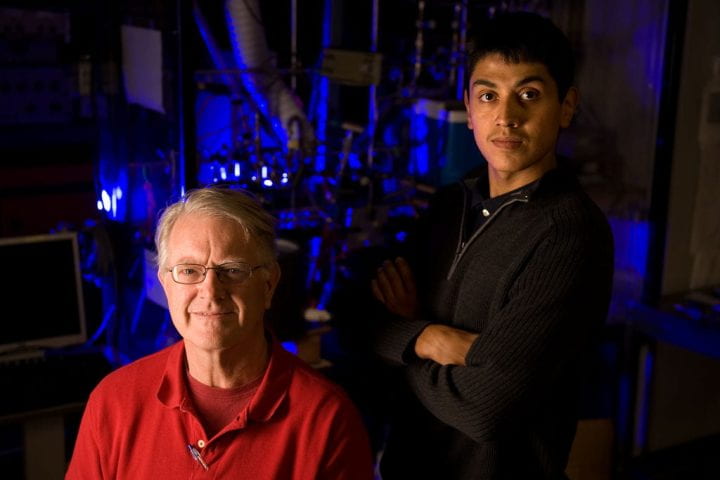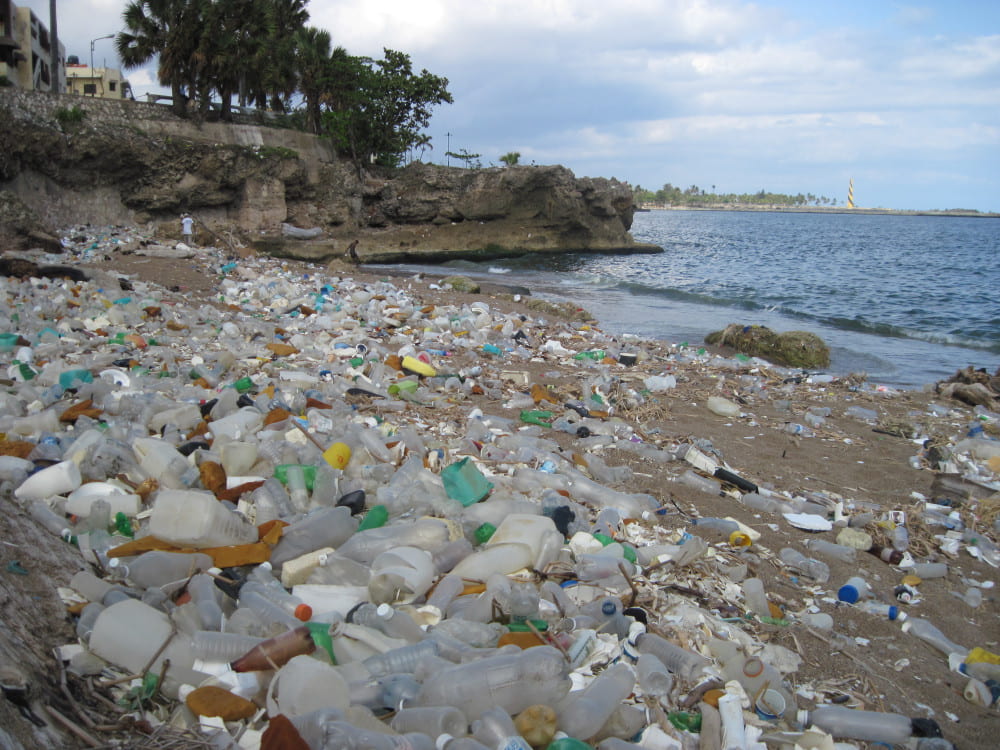One unlikely pair leads to another: fire and ice
Dean Ken Janda and undergrad work together on novel research.

Fire and ice don’t mix. Neither do oil and water – or so the sayings go. But if you’re an ace UC Irvine undergraduate like Joel Rivera working with Kenneth C. Janda, dean of the School of Physical Sciences, barriers are broken in more ways than one.
Janda, a lifelong chemist with a laboratory two floors up from his Rowland Hall office, says Rivera came to his attention nearly four years ago. Kika Friend, director of UCI’s California Alliance for Minority Participation program – which supports students in science, technology, engineering and math – told him about the talented freshman.
“We hit it off as soon as we met,” Janda recalls. “We both do chemistry for fun; it’s our hobby as well as our job.” Translation: Both thought it would be a great idea to figure out how to load as much propane as fast as possible into ice and then burn it.
In scientific terms, they’re studying the kinetics of the formation of gas clathrate hydrates – compounds made when water molecules bond to form cages around gaseous molecules. The work has huge potential. There are a trillion tons of methane stored in deposits under the world’s oceans, Janda says, “enough to run the country for 500 years.” (Propane is almost identical to methane and easier to work with in a lab.)
Methane, however, is a potent, combustible greenhouse gas. Watching reports on the Gulf of Mexico oil spill last summer, Rivera says, he was stunned to realize that a methane blowout could have caused the deadly explosion and prevented the leak from being quickly capped.
If the substance could be extracted safely and frozen in huge blocks, it could be transported more easily than highly explosive liquefied gas. Employing available data that showed fuels like methane and propane – essentially oils – could, in fact, be frozen in water, Rivera began working under Janda’s tutelage to figure out precisely the right size of ice for maximum storage of volatile gases.
“The key is you want to expose as much of the ice to the propane as possible, and to do that, you want to use the smallest ice grains possible,” he says.
Between a full class schedule and supervising a residence for chemistry students, Rivera has spent countless hours setting up experiments early in the morning and returning to the lab late at night to check results. He freezes tiny pellets of ice, then reduces them even finer with various coffee grinders. “I’ll never look at a snow cone the same way again,” he jokes.
The 21-year-old senior from Rancho Cucamonga, in San Bernardino County, has earned summer grants and honors credits for his work. Now Rivera could end up being the sole author on a peer-reviewed, published paper – “quite uncommon at a research university,” Janda says. “He’s perfected an experimental technique that’s providing great new data and insight. We’re hoping to have it published in the very near future.”
Janda, who earned a bachelor’s degree at Michigan’s Hope College and a doctorate at Harvard University, notes that about half of UCI’s chemistry undergrads do research – usually under the supervision of a grad student – and maybe one in five is a co-author on a paper.
But Rivera was so good that after a year, Janda put him to work on his own. This fall, a block of Rivera’s methane-loaded ice was set on fire, under controlled circumstances, in his chemistry lecture.
Janda is so pleased by Rivera’s research that he has recruited six budding chemists to continue it next year. As for Rivera, he’s now weighing graduate studies offers from UCI, UCLA, Stanford University and UC San Diego. Wherever he ends up, he’s grateful for the opportunity Janda gave him.
“I never expected to be working with someone as incredible – in every possible way – as Dean Janda. Despite the fact that he’s, you know, the dean, he always seems to have time for the students,” Rivera says. “I’ve learned so much from him.”

